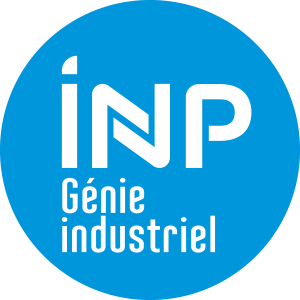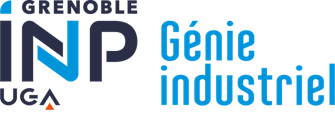Number of hours
- Lectures 36.0
- Projects -
- Tutorials 16.5
- Internship -
- Laboratory works 3.0
- Written tests 2.0
ECTS
ECTS 6.0
Goal(s)
Digital representations are key elements in product development processes. CAD software and technical data management systems help product designers in handling product description data.
This course teaches students the main concepts of these software tools so they can use them more efficiently in a design office and teaches them how to specify the quality of data throughout a company. At the end of the course students know how to:
• create and modify a partial description of a product being developed by using conventional geometric representations (CAD) and technical data management system tools
• identify the different stages of a product being developed
• understand the limits of current software descriptions and assess their impacts on the product development process
• share product information by using technical data management system tools
(configuring Product Data Management (PDM) is not studied in this course)
• exchange information between different design support software tools
• organise the different stages of the product development process by using existing software tools, taking into account their limitations.
Content(s)
Lectures
• introduction - concept of a digital representation, principles of description and product shape modelling processes
• descriptive models of curves, surfaces, volumes and non-manifold objects
• modelling process of surfaces and volumes (B-Rep and CSG)
• setting up a model
• parameterised geometry
• modelling assembling
• exchanging models
• exchanging standards of geometric models
• STEP (STandard for the Exchange of Product model data)
• protocols for interoperability between models
• sharing digital representations of products: technical data management systems
• elements of modelling by entities
• sharing elementary models of digital product representations
• representing product reference: versions and configurations
• managing access rights: reservation of rights, notification process
• application process for modifications
Tutorials - practical work using machines
• modelling a complex object using CAD software
• limits of voluminal modelling
• surface modelling
• parameterised models
• sharing information using PDM
• configuration management
• implementation of a change request
• implementation of notifications
• exchanging data between heterogeneous tools
- retro-design
Labwork :
Modelisation of a complex system and link to of skilled expertises
Basic handling of voluminal modelling and modules for specific jobs.
CC = Assessment of practical work
There are no 'resits' for practical work, so the marks can not be changed.
E1 = Final written exam for the 1st exam period
E2 = Final written or oral exam for the 2nd exam period
N1 = Final mark for the 1st exam period
N2 = Final mark for the 2nd exam period
N1 = (CC+E1)/2
N2 = E2
où
CC = contrôle continu (TP + Exposés eventuels)
E1 = Evaluation individuelle première session (tout test ou examen intermediaire)
E2 = Examen seconde session
Cette pondération est compatible avec une organisation des enseignements et des examens en distanciel
The course exists in the following branches:
- Curriculum - Engineer student Master PD - Semester 7
- Curriculum - M1 Industrial Engineering - Semester 7
Course ID : 4GUP0305
Course language(s): 
You can find this course among all other courses.
The NURBS Book, Piegl and Tiller, Hermès 1994
Modélisation des courbes et des surfaces en CFAO, J.C Léon, Hermès 1991
PDM: Product Data Management, Rodger Burden, Springer; 1 edition (November 5, 2003)ISBN-10: 3540403736, ISBN-13: 978-3540403739
Product Lifecycle Management, Antti Saaksvuori, Anselmi Immonen, Resource Publishing (May 19, 2003) ISBN-10: 0970035225, ISBN-13: 978-0970035226
Product Lifecycle Management: Driving the Next Generation of Lean Thinking,McGraw-Hill; 1 edition (October 26, 2005), ISBN-10: 0071452303, ISBN-13: 978-0071452304
Product Lifecycle Management: 21st century Paradigm for Product Realisation, Springer; 1 edition (August 27, 2004), ISBN-10: 1852338105, ISBN-13: 978-1852338107



